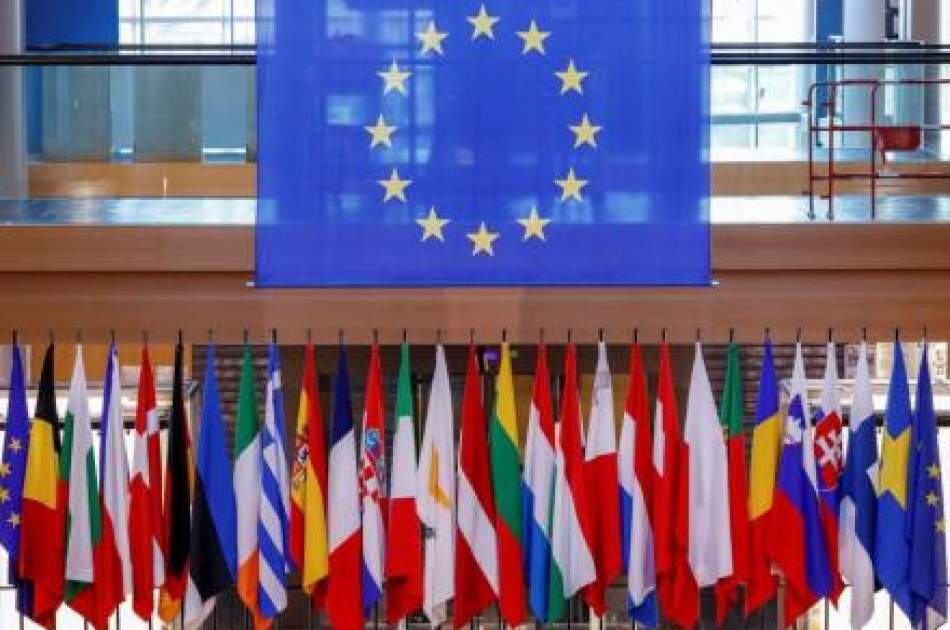The EU's foreign policy chief on Wednesday urged bickering nations to settle their differences on restricting travel for Russian citizens.
Publish dateWednesday 31 August 2022 - 14:45
Story Code : 257914
Afghan Voice Agency(AVA)_Monitoring, Josep Borrell made his warning as foreign ministers of the European Union gathered in Prague for a second day of talks, where they were expected to agree in principle on suspending a visa facilitation agreement with Moscow.
That step would make Russians wait longer, and pay more, for visas for travel to EU countries. But the 27 member states were stubbornly divided on whether they should go further and impose a blanket tourism ban, despite repeated call from Ukraine to make ordinary Russians pay for the invasion.
Some EU states have already restricted entry for Russians. Eastern and Nordic countries are pushing for an outright ban, while Germany and France have warned their peers it would be counter-productive.
"We will have to reach an agreement and a political decision," the EU's foreign policy chief Josep Borrell told reporters as he arrived at the Prague meeting.
"I will be working for unity... We cannot afford to appear disunited in such an important thing, which is the people-to-people relations, between the Russian society and the European people."
Some eastern states have said they will press ahead with a visa ban themselves if there is no agreement.
Estonian Foreign Minister Urmas Reinsalu said a travel ban was necessary. "The timing is crucial, and loss of time is paid with blood of Ukrainians," he said.
"We are communicating with the countries in our region, and I think it's our national competence under the principle of national security to decide the issues of entry to our soil."
Estonia, Finland, Lithuania, Latvia and Poland have written a joint statement asking the European Commission to propose measures to "decisively decrease the flow of Russian citizens into the European Union and the Schengen area," the Financial Times reported.
"Until such measures are in place on the EU level, we will consider setting up temporary measures on the national level," the FT quoted them as saying.
Ukrainian Foreign Minister Dmytro Kuleba also pushed for tougher measures, saying, in a statement emailed to Reuters: "A visa ban for Russian tourists and some other categories will be an appropriate response to Russia's genocidal war of aggression in the heart of Europe supported by an overwhelming majority of Russian citizens."
But the tone in Prague, overall, was to try and agree a common position. "I think it is the most effective if we can make decisions together between all European countries," said Finland's foreign minister, Pekka Haavisto.
Meanwhile, German Foreign Minister Annalena Baerbock warned against divisions on the matter. "We can be strong together, but only if we think European and not if we draw back into nationalist snail shells," she said.
That step would make Russians wait longer, and pay more, for visas for travel to EU countries. But the 27 member states were stubbornly divided on whether they should go further and impose a blanket tourism ban, despite repeated call from Ukraine to make ordinary Russians pay for the invasion.
Some EU states have already restricted entry for Russians. Eastern and Nordic countries are pushing for an outright ban, while Germany and France have warned their peers it would be counter-productive.
"We will have to reach an agreement and a political decision," the EU's foreign policy chief Josep Borrell told reporters as he arrived at the Prague meeting.
"I will be working for unity... We cannot afford to appear disunited in such an important thing, which is the people-to-people relations, between the Russian society and the European people."
Some eastern states have said they will press ahead with a visa ban themselves if there is no agreement.
Estonian Foreign Minister Urmas Reinsalu said a travel ban was necessary. "The timing is crucial, and loss of time is paid with blood of Ukrainians," he said.
"We are communicating with the countries in our region, and I think it's our national competence under the principle of national security to decide the issues of entry to our soil."
Estonia, Finland, Lithuania, Latvia and Poland have written a joint statement asking the European Commission to propose measures to "decisively decrease the flow of Russian citizens into the European Union and the Schengen area," the Financial Times reported.
"Until such measures are in place on the EU level, we will consider setting up temporary measures on the national level," the FT quoted them as saying.
Ukrainian Foreign Minister Dmytro Kuleba also pushed for tougher measures, saying, in a statement emailed to Reuters: "A visa ban for Russian tourists and some other categories will be an appropriate response to Russia's genocidal war of aggression in the heart of Europe supported by an overwhelming majority of Russian citizens."
But the tone in Prague, overall, was to try and agree a common position. "I think it is the most effective if we can make decisions together between all European countries," said Finland's foreign minister, Pekka Haavisto.
Meanwhile, German Foreign Minister Annalena Baerbock warned against divisions on the matter. "We can be strong together, but only if we think European and not if we draw back into nationalist snail shells," she said.
avapress.net/vdchzqnik23nmwd.01t2.html
Tags
Top hits







